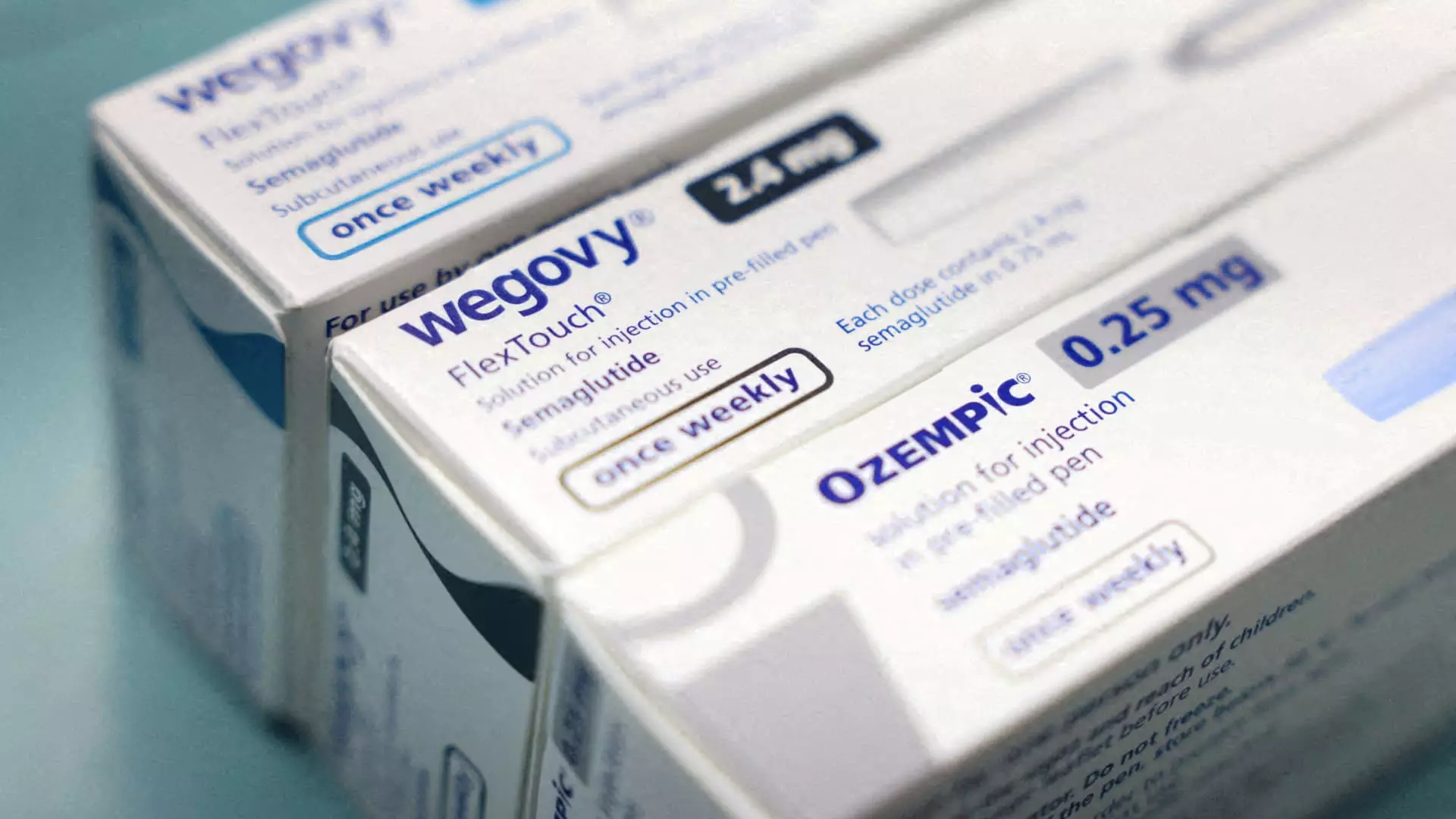After a significant interruption extending over two years, the U.S. market has witnessed a resolution to the shortage of Novo Nordisk’s prized injectable medications—Wegovy for weight loss and Ozempic for diabetes treatment. This development, announced by the U.S. Food and Drug Administration (FDA), signals a major shift not only for Novo Nordisk but also for the entire landscape of diabetes and obesity treatment in the United States. The implications of this resolution are complex, touching upon everything from pharmaceutical manufacturing to broader public health considerations.
Prior to this announcement, the scarcity of Novo Nordisk’s semaglutide injections was primarily triggered by an unprecedented surge in demand. Patients seeking effective solutions turned to compounded versions created by alternative pharmacies, many of which offered these alternatives at lower prices. However, this practice illuminated a troubling facet of pharmaceutical availability: the presence of unregulated, possibly unsafe formulations that posed risks to patients. The recent FDA decision could close that door, simplifying the choices available for consumers and potentially safeguarding their health.
The lifting of the shortage brings with it a stern warning to compounding pharmacies that have been filling the void in the market. With the FDA’s new declaration, these pharmacies have a limited timeframe—between 60 to 90 days—to cease the production of compounded semaglutide items. This regulatory move threatens the viability of many small operators who had carved out a niche in the absence of sufficient branded products. For these compounders, the fallout may be severe, as they face dwindling demand in an environment where they could previously market their products as essential alternatives.
The shift embodies the larger normative concerns surrounding compounded medications, which, while providing short-term relief, can often lack the rigorous safety and efficacy measurements associated with FDA-approved drugs. Emphasizing the need for validated treatments, Novo Nordisk’s executive vice president, Dave Moore, underscored the critical importance of patient safety amidst a climate rife with misinformation.
Market Reactions and Industry Dynamics
After the FDA announcement, the stock market reacted predictably yet sharply. Shares of Novo Nordisk experienced a rise of approximately 5%, reflecting investor confidence in the company’s ability to regain control over its market share and manage its manufacturing processes effectively. In contrast, telehealth company Hims & Hers, known for distributing compounded versions of Wegovy and Ozempic, saw a significant plunge of over 25%. This marked a stark elucidation of the dual-sided nature of the pharmaceutical landscape: innovation and regulation must coexist to ensure patient access while maintaining safety standards.
This market dynamic is heightened by the fierce competition between pharmaceutical giants. Eli Lilly, a formidable competitor in the weight loss arena with its injectable tirzepatide products, is still navigating its challenges. The resolution of the semaglutide shortage enhances Novo Nordisk’s capacity to compete directly with Eli Lilly. Analysts project that the weight loss market could burgeon into a formidable $150 billion sector, presenting fertile ground for competition and innovation as these companies vie for the attention of both consumers and healthcare providers.
Moreover, the decision does not entirely guarantee seamless access for all patients. Notably, while Ozempic is commonly covered by various health insurance plans, Wegovy remains outside the purview of Medicare and other insurance programs. This exemption raises critical questions about equity in healthcare and equitable access to life-changing medications, particularly for those grappling with obesity.
As the pharmaceutical industry continues to adapt, it becomes critical for stakeholders to balance growth with responsibility. Addressing systemic issues within drug access, insurance coverage, and patient education will be paramount when companies navigate the complexities posed by shifting market conditions.
While the lifting of the shortage for Novo Nordisk’s semaglutide injections provides a moment of relief and optimism, it introduces a new layer of challenges that will require vigilant oversight from both the FDA and the broader healthcare community to ensure patient safety and equitable access to essential treatments. The interplay between regulation, innovation, and consumer needs remains at the forefront of this evolving narrative.

